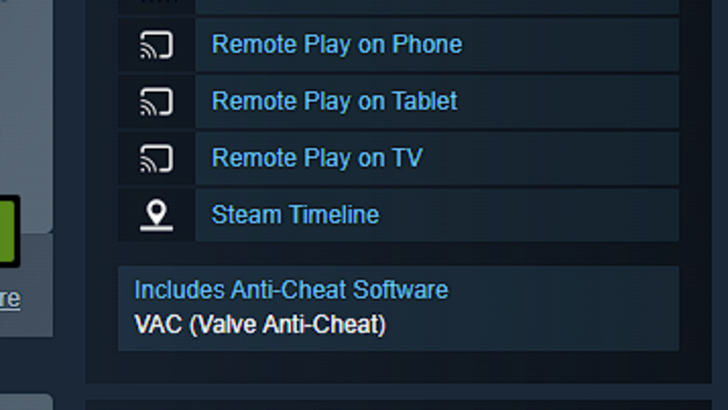Ragnarok Online 3 Pre-Order DetailsRagnarok Online 3 is not yet open for pre-order on any official storefront. Stay tuned for updates as soon as official announcements are made.Similar Games to Try
Author: LiamReading:0
 Steam has implemented a new requirement for developers: disclosing whether their games utilize kernel-mode anti-cheat. This move aims to enhance transparency and address player concerns surrounding the controversial technology.
Steam has implemented a new requirement for developers: disclosing whether their games utilize kernel-mode anti-cheat. This move aims to enhance transparency and address player concerns surrounding the controversial technology.
 Via a recent Steamworks API update, developers can now specify their game's anti-cheat usage on their store pages. While disclosure for non-kernel-based systems remains optional, kernel-mode anti-cheat implementation is now mandatory. This addresses growing player anxieties about the potential invasiveness of such systems.
Via a recent Steamworks API update, developers can now specify their game's anti-cheat usage on their store pages. While disclosure for non-kernel-based systems remains optional, kernel-mode anti-cheat implementation is now mandatory. This addresses growing player anxieties about the potential invasiveness of such systems.
Kernel-mode anti-cheat, which directly monitors system processes for malicious activity, has been a subject of debate. Unlike traditional methods focusing on in-game behavior, kernel-mode solutions access low-level system data, raising concerns about performance impacts, security, and privacy.
 Valve's decision reflects feedback from both developers and players. Developers sought clearer avenues for communicating anti-cheat details, while players demanded greater transparency regarding anti-cheat services and any accompanying software installations.
Valve's decision reflects feedback from both developers and players. Developers sought clearer avenues for communicating anti-cheat details, while players demanded greater transparency regarding anti-cheat services and any accompanying software installations.
Valve's statement on the Steamworks blog highlights this dual need for improved communication. The new feature simplifies information sharing for developers and provides players with more informed choices.

 Launched October 31st, 2024, at 3:09 a.m. CST, the update is already live. Counter-Strike 2's Steam page now clearly displays its use of Valve Anti-Cheat (VAC), showcasing the change in action.
Launched October 31st, 2024, at 3:09 a.m. CST, the update is already live. Counter-Strike 2's Steam page now clearly displays its use of Valve Anti-Cheat (VAC), showcasing the change in action.
While many users applaud Valve's "pro-consumer" approach, the rollout hasn't been without criticism. Some have pointed out minor issues like grammatical inconsistencies and awkward wording.
 Practical questions regarding language translation and the definition of "client-side kernel-mode" anti-cheat have also been raised, with PunkBuster cited as a specific example. The ongoing debate surrounding the invasiveness of kernel-mode anti-cheat persists.
Practical questions regarding language translation and the definition of "client-side kernel-mode" anti-cheat have also been raised, with PunkBuster cited as a specific example. The ongoing debate surrounding the invasiveness of kernel-mode anti-cheat persists.
Despite initial mixed reactions, Valve's commitment to pro-consumer platform improvements is evident, demonstrated by their transparency regarding recent California consumer protection legislation. Whether this new feature will fully alleviate community concerns about kernel-mode anti-cheat remains to be seen.
 LATEST ARTICLES
LATEST ARTICLES